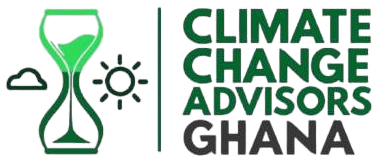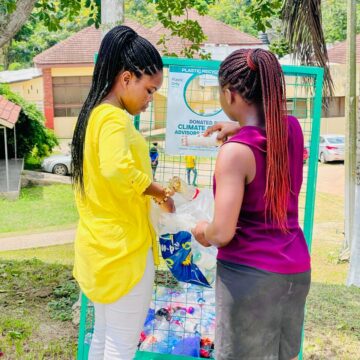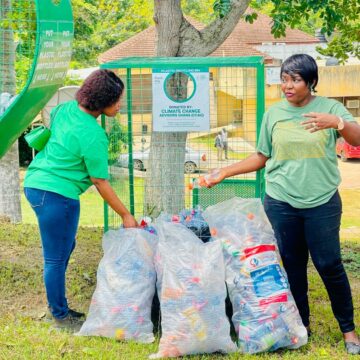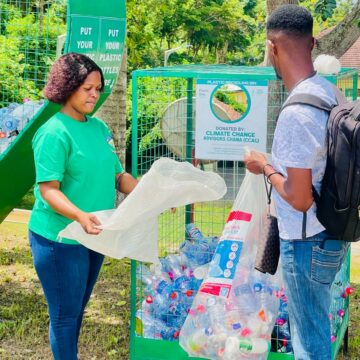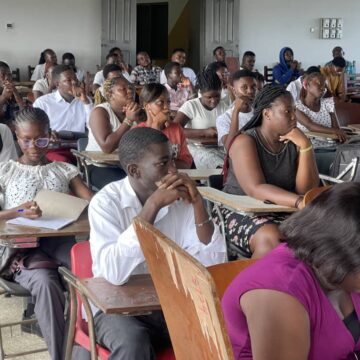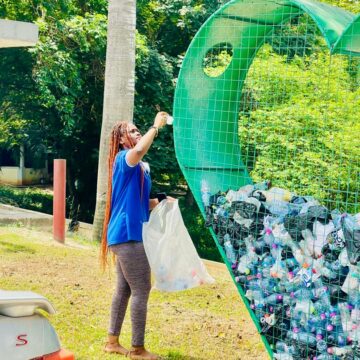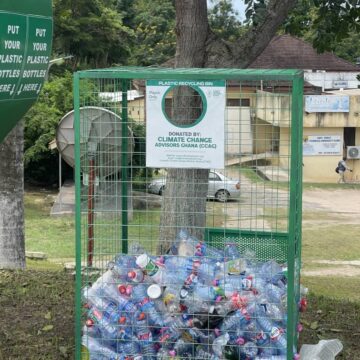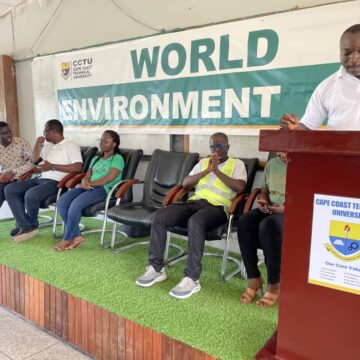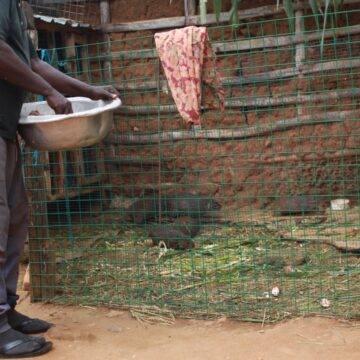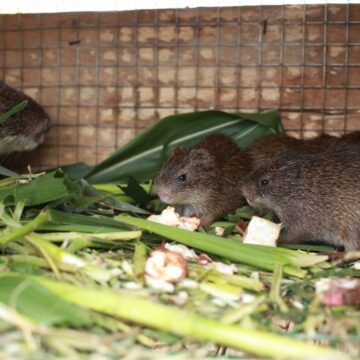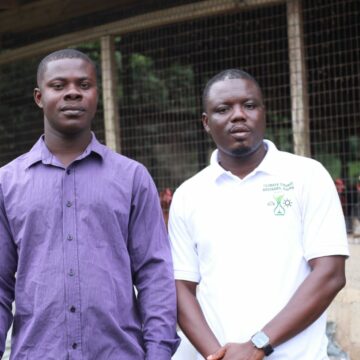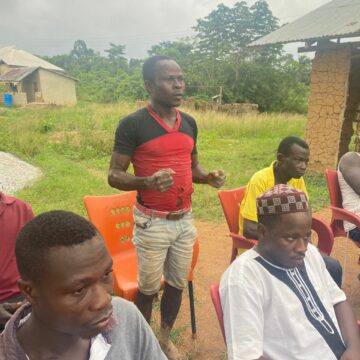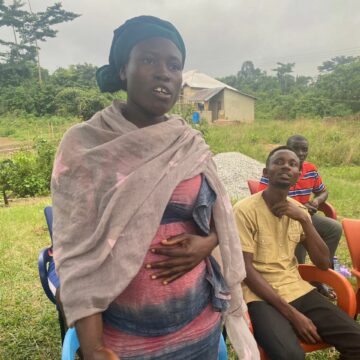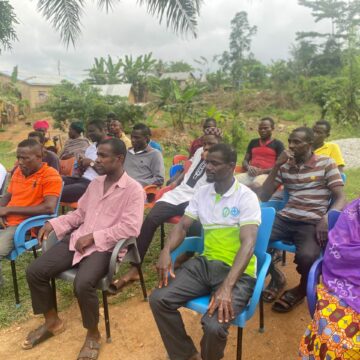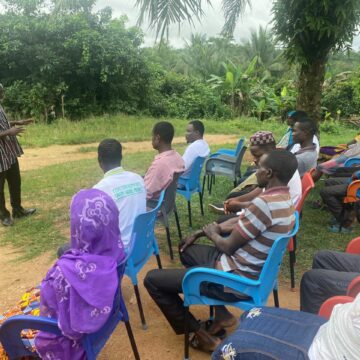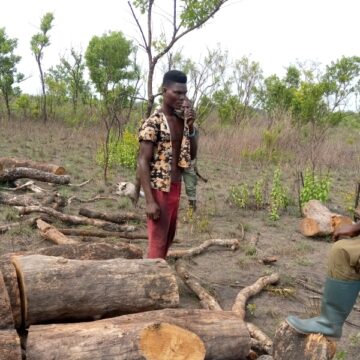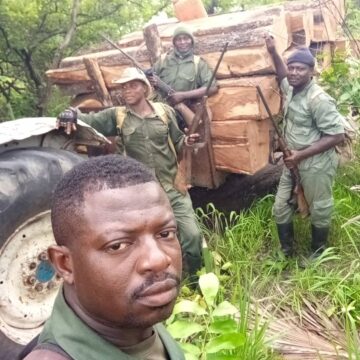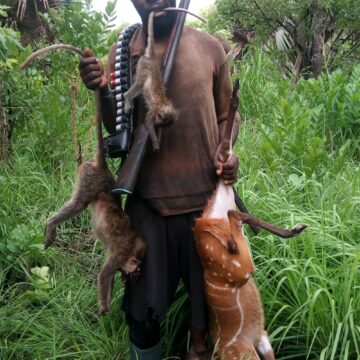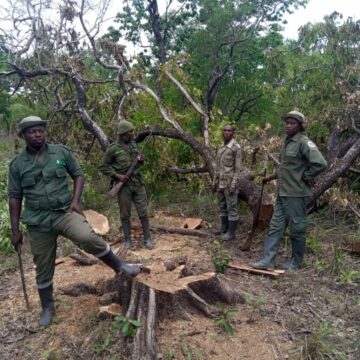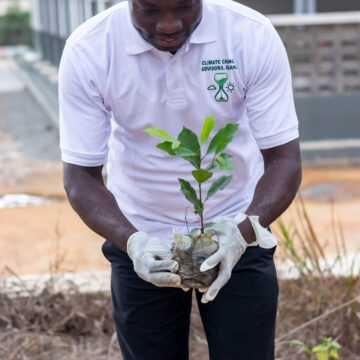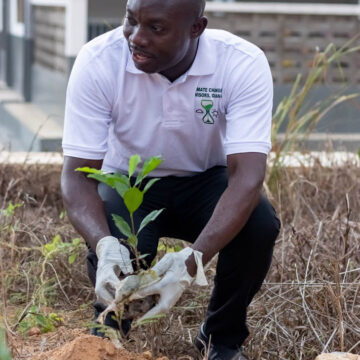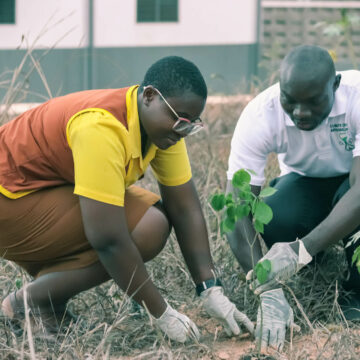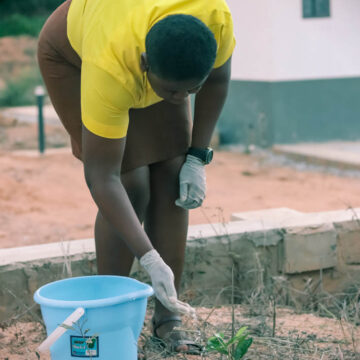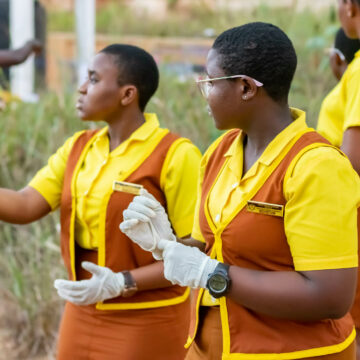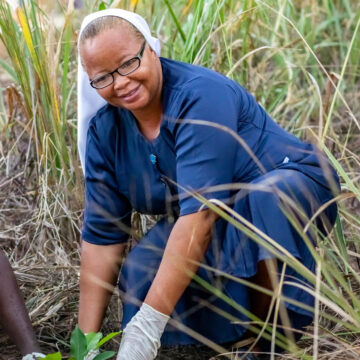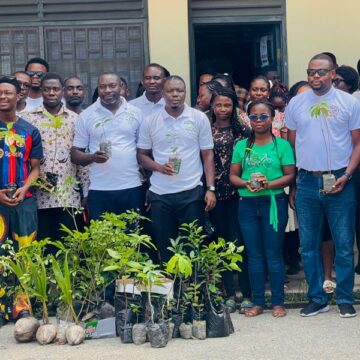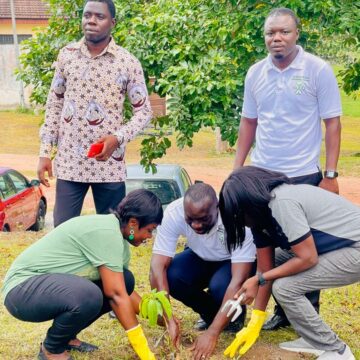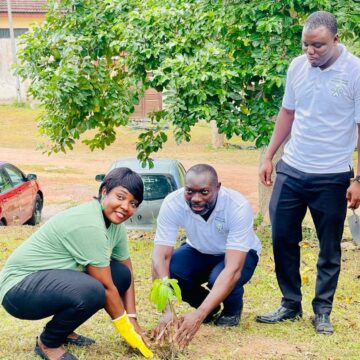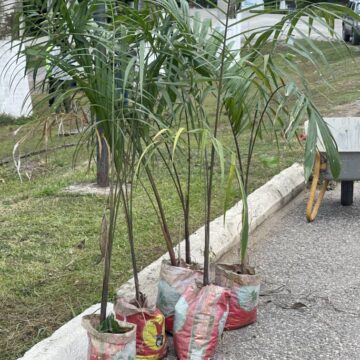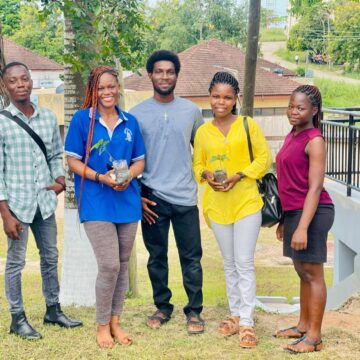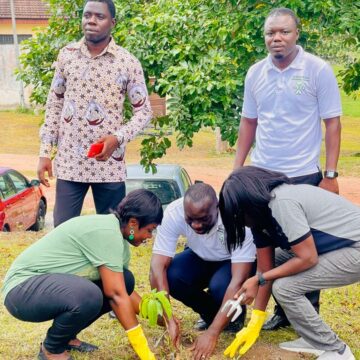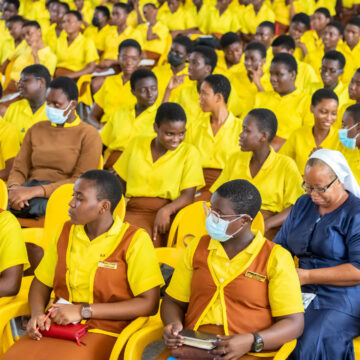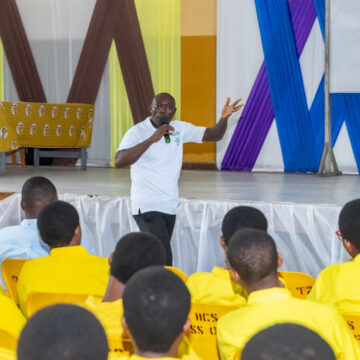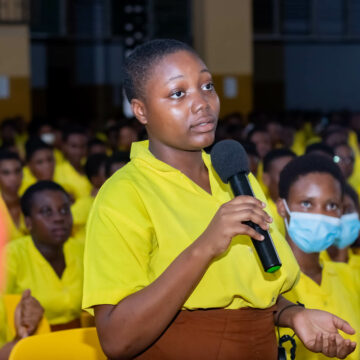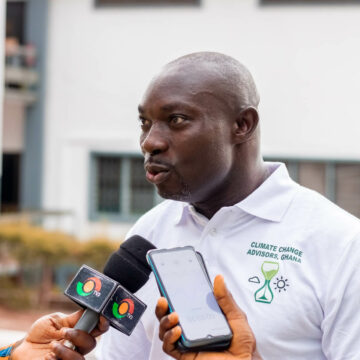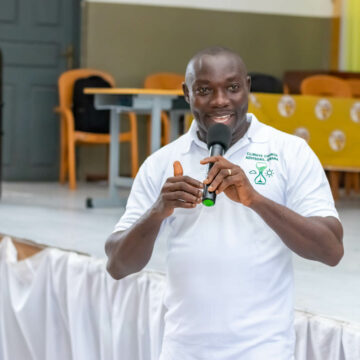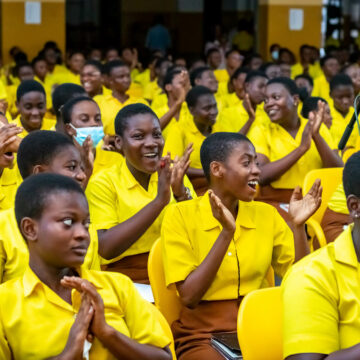Project Goal: To reduce plastic pollution and promote a culture of recycling and environmental sustainability through the provision of recycling bins and awareness creation across educational institutions and communities in Ghana.
Project Description: Plastic waste pollution has become a significant environmental challenge in Ghana, contributing to flooding, land degradation, marine pollution, and health hazards. Improper disposal of plastic waste leads to blocked drainage systems, increasing the risk of flooding in urban areas. Moreover, plastics take hundreds of years to decompose, leading to long-term environmental damage. Climate Change Advisors Ghana (CCAG) recognises the urgent need to address plastic waste management and promote recycling as a sustainable solution.
The Zero Plastic Waste Initiative is a national environmental campaign spearheaded by Climate Change Advisors Ghana (CCAG) to combat plastic pollution and promote sustainable waste management practices across Ghana. This initiative focuses on reducing plastic waste generation, encouraging proper waste segregation, and fostering a recycling culture among citizens, especially within educational institutions and public spaces.
The Initiative, by CCAG, aimed at reducing plastic waste pollution and promoting environmental sustainability through responsible waste management. Under the initiative, CCAG is distributing clearly labelled and intricately designed, locally crafted wire mesh recycling bins to selected communities, public areas, university campuses, second-cycle institutions (senior high schools), and Basic Schools. The initiative also includes awareness creation campaigns, training sessions, and stakeholder engagement programs to build the capacity of beneficiaries to manage plastic waste responsibly.
Target Groups
- Local Communities – Residents in urban and rural areas where plastic waste pollution is a major issue.
- Educational Institutions – University Campuses, Secondary Schools, and Basic Schools to instil recycling habits in students.
- Public Spaces & Markets – Busy areas such as parks, transport terminals, shopping centres, and marketplaces where plastic waste is commonly generated.
- Government Institutions & Local Authorities – Municipal and District Assemblies, environmental agencies, and policymakers responsible for waste management.
- Environmental & Waste Management Organisations – NGOs, recycling firms, and other stakeholders in sustainable waste management.
- Youth & Women’s Groups – Engaging young people and women in recycling initiatives to promote community-driven solutions.
Specific Objectives
- Reduce plastic waste pollution by promoting proper waste disposal and effective recycling practices.
- Raise awareness about the environmental and health impacts of plastic waste on individuals and communities.
- Enhance community participation in plastic waste management through education, outreach, and capacity-building initiatives.
- Establish a strong network of stakeholders, including local authorities, educational institutions, and environmental organisations, to drive collaborative recycling efforts.
- Contribute to Ghana’s climate resilience goals by fostering cleaner, safer, and more sustainable environments.
Expected Outcomes
- Increased awareness and active participation in plastic waste recycling across schools, communities, and institutions.
- Significant reduction in plastic waste pollution, resulting in a cleaner and healthier environment.
- Improved drainage systems and reduced incidence of flooding through proper waste disposal practices.
- Stronger partnerships between local authorities, environmental NGOs, and waste management companies in tackling plastic waste issues.
- Meaningful contribution to Ghana’s environmental sustainability and long-term climate resilience objectives.
Funding Organization: Climate Change Advisors Ghana
Project Goal:
The goal of the project is to enhance the climate resilience of coastal communities by promoting sustainable livelihood diversification through training, capacity building, and community engagement.
Project Summary:
The Coastal Climate Resilience for Sustainable Livelihoods project is a strategic initiative by Climate Change Advisors Ghana (CCAG) designed to build the adaptive capacity of coastal communities vulnerable to the impacts of climate change. The project targets fisherfolk and other coastal residents whose traditional livelihoods are increasingly threatened by rising sea levels, coastal erosion, unpredictable weather patterns, and declining fish stocks.
Recognising the urgent need for adaptation, this project seeks to promote sustainable livelihood diversification through practical training, capacity-building, and support in alternative income-generating activities. These include:
Target Groups:
Coastal community members, particularly fisherfolk, women, youth, and marginalised groups.
Specific Objectives:
Expected Outcomes:
Funding Organization: Climate Change Advisors Ghana (CCAG)
Project Goal: The project aims to harness and amplify indigenous knowledge that has been accumulated over generations within these communities. By bridging the gap between traditional wisdom and modern science, the project empowers participants to make informed decisions regarding crop selection, irrigation, land management, and disaster preparedness. As a result, the project directly contributes to reducing vulnerability to climate-related shocks and fosters long-term resilience within these communities.
Project Location:Cape Coast North, Agona East and Mfantseman Municipal.
Target Group: Local farmers
Project Description
The project, “Mobilising Community Indigenous Knowledge for Climate Resilience in Ghana”, spearheaded by Climate Change Advisors Ghana (CCAG), addresses a critical need within farming communities in the central region of Ghana.
Funding Organization: Climate Change Advisors Ghana
Funding Organization: Climate Change Advisors Ghana
Funding Organization: Climate Change Advisors Ghana
Funding Organization: Climate Change Advisors Ghana


